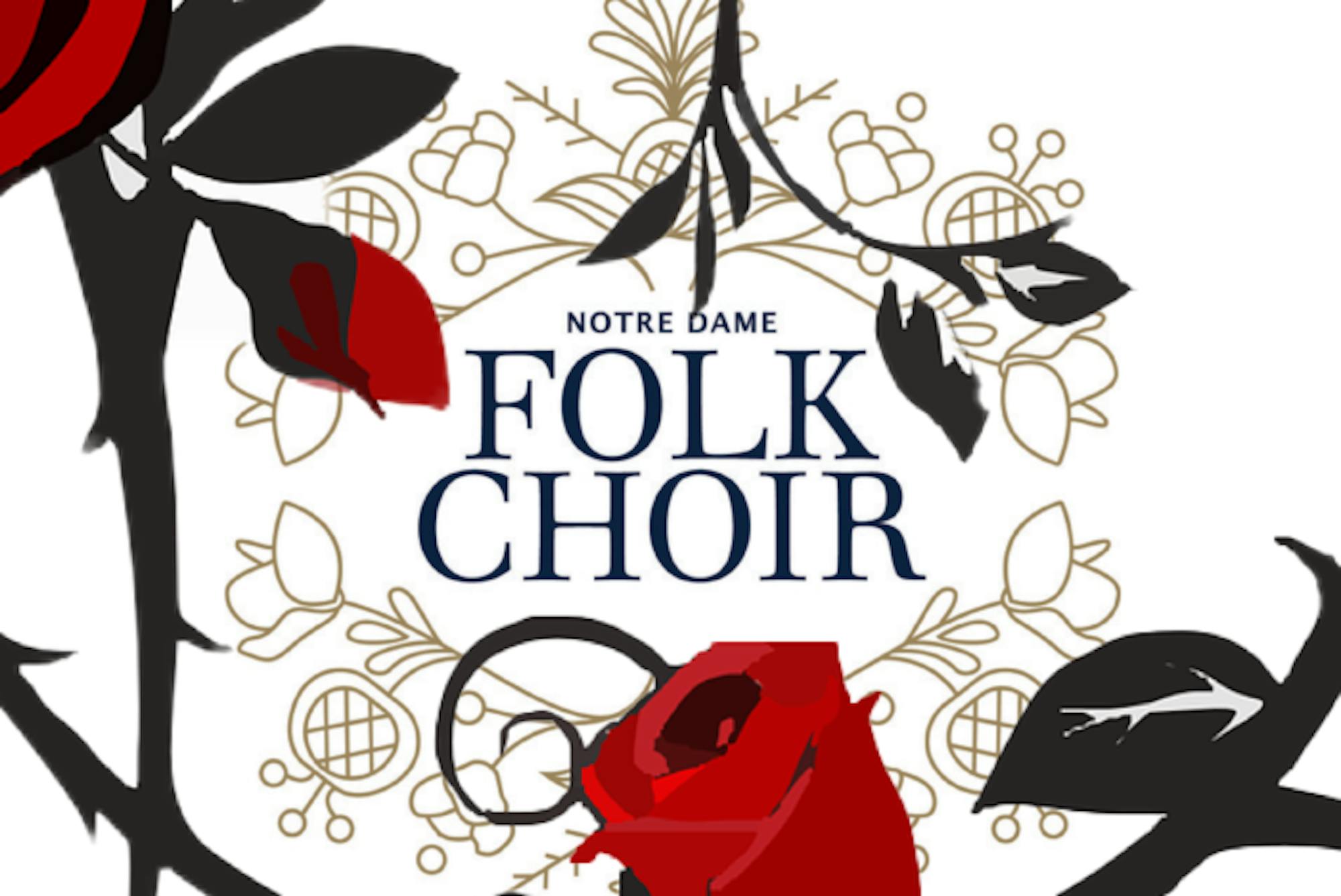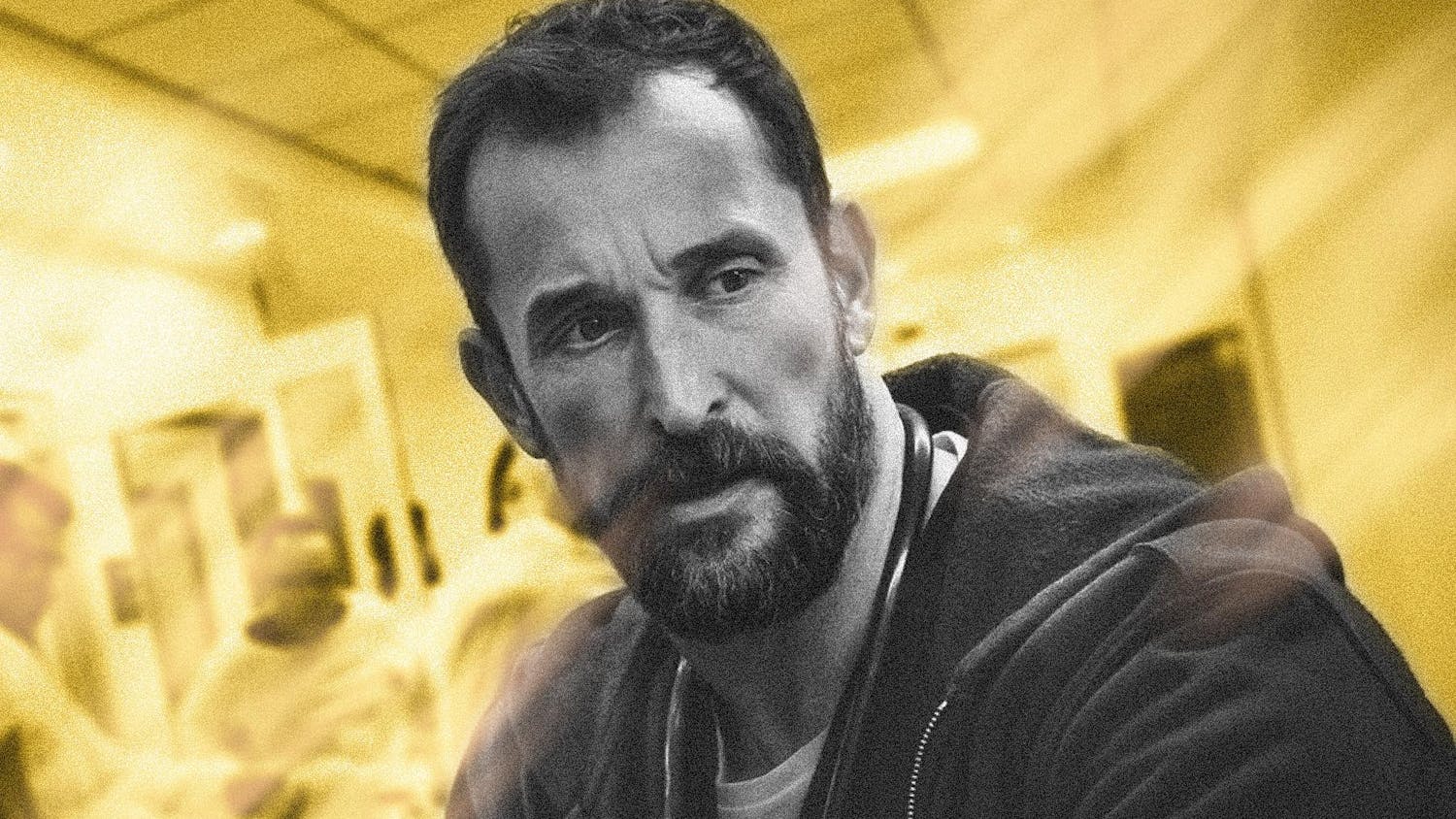
On Sunday, audiences gathered at the Basilica of the Sacred Heart to contemplate the Passion of Christ through a unique artistic medium. The story that inspired innumerable dramatizations throughout the centuries was now featured in a contemporary adaptation, conjoining various genres of popular music in a work designed to vivify and elucidate the Passion of the Christ within the imagination. Even more impressive than this idea was observing how students collaborated in the creation of meaningful poetry and the composition of spirited music, producing an amalgamation of stunning pieces.
Just as the Folk Choir's goal was to enrich one's memory, so does the figure of Memory herself guide the audience through the events of the Gospels. The lessons and themes of the play are displayed by none other than the Spirit, who initiates sweet moments of reflection through her solos. There is an emphasis on the feelings experienced by each character, making the narrative approachable and inviting. Each instrumentalist and vocalist embodied the feelings they were designated to communicate, and the purity of the notes and beauty of the music outpoured as a result.
The presence of musical parallels created cohesion within the performance, allowing the audience to grasp the connections present within Scripture, as was the case with Mary Magdalene's anointing of Jesus' feet and the foot washing of the disciples. Both continually emphasize the significance of the washings as a shining moment of selflessness as the chorus repeats the action itself during Magdalene's reflections. Finally, Magdalene and the chorus reiterate the same theme as they remember the washing of Jesus' body in preparation for his burial.
Another notable parallel was the decision to feature a prologue and epilogue, both taking place within the context of Holy Saturday. While the disciples are concerned with their grief, desperation and search in the past for answers in the opening, the conclusion displays transformed sentiments and a knocking — a hint to the incoming Resurrection. The influence from the African American spiritual was yet another aspect of the ending piece's impact.
Whenever the chorus stood to embellish the force of a particular scene, soaring and radiant chords would overflow the atmosphere. Words like "innocence" received a beautiful, prolonged suspension, and the quiet, gentle murmurings of “We have abandoned him” displayed the pangs of guilt as they echoed in the conscience of those recalling the Gethsemane scene. Whisperings of tension would build at key moments, like when the high priests stirred the crowd to side with them for the punishment of Jesus.
The music expresses the meaning of the text to its fullest intensity. In the Palm Sunday scene, the chorus sings the phrase “Can we believe our eyes?” with notes that mount, swell and climb upon each other, reflecting the growing realization stirring within the people. At the foot washing scene after Jesus explains the apostles will no longer see him, the apostles' confusion is most easily perceived through the long-held wailings of “Master, where are you going?“ The way the piano sparkles with panicked schisms within the happenings of the Gethsemane scene portrays the undergoing chaos.
“Passion” also made a point to illustrate the tangible, physical aspects of the story. At the carrying of the cross, the choir physically stomped to evoke the procession. Or, when recounting the agonizing final breaths before Jesus's death, the chorus joined to animate the inhale and exhale. Even the banging of the nails upon the cross could be heard in tangent to the ongoing melodies.
To produce a work of this length and magnitude was an incredible accomplishment. However, this brilliant effort was not confined to Sunday, as the Folk Choir will continue to present “The Passion” on tours and will also record an album in Israel. It is an experience that all must partake in, as the depth of the work remains too great to describe.
Notre Dame Folk Choir presents moving rendition of ‘The Passion’
IMAGE SOURCES: PIXABAY, ND FOLK CHOIR
IMAGE SOURCES: PIXABAY, ND FOLK CHOIR









